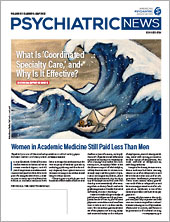“My life is so much better with this in it,” reads a post on Twitter accompanying a photo of a pill in the palm of a hand. “I wish I hadn’t been so caught up in the stigma that I waited until I was really desperate to go on [medication],” reads another caption from an Instagram user with 227,000 followers, under a photo of a pill resting atop a finger.
Both posts were made in response to a social media campaign called #postyourpill that the United Kingdom’s Youth Mental Health Ambassador Alex George began late last year. The campaign encourages people to post photos of themselves taking their psychiatric medications to reduce stigma around their use. It has generated over 8,500 posts in response, with commenters calling posters brave, applauding their strength in sharing their experiences, and emphasizing how many people such posts help.
Social media campaigns like #postyourpill or #MyTipsForMentalHealth, which trended in 2017, can play an important role in destigmatizing treatment for mental illness, explained John Torous, M.D. “There is such potential to use social media as a force of education, knowledge sharing, and inspiration around mental health,” he said. “But we also know there’s tremendous risk of spreading false and stigmatizing information on social media.”
Torous is the director of the Digital Psychiatry Program at Harvard-affiliated Beth Israel Deaconess Medical Center in Boston and chair of APA’s Committee on Mental Health Information Technology.
Posting about personal experiences with mental illness, even to reduce stigma, can be a double-edged sword. In 2019, Torous reached out to the creator of the #MyTipsForMentalHealth campaign, Amanda Stafford, and she joined him as a coauthor of a study aimed at understanding the nature of and engagement with mental health social media campaigns. Their findings were published in March 2019 in Translational Behavioral Medicine.
They collected 14,217 Twitter posts from 10,805 users between September and October 2017 that contained the hashtag #MyTipsForMentalHealth. Positive content dominated the discourse, such as personal tips and experiences related to mental health, but stigmatizing content was not uncommon, Torous said. In fact, stigmatizing posts (which were often political in nature) were shared more than positive content.
Any campaign that will help improve the public’s understanding of psychiatric medications and reduce the stigma around their use is positive, Torous said, but he emphasized that it is a significant decision to post photos of medications. “There shouldn’t be an expectation that you have to share your personal medical information online, but for those who want to, it can be helpful for others,” he said. “The vast majority of the patients I work with, though, wouldn’t want to share their information, and patients shouldn’t feel obliged to.”
The #postyourpill campaign has generated overwhelmingly positive responses, while a very small number of posts suggest that antidepressant medications are dangerous or poisonous. Some people have made comments suggesting individuals participating in #postyourpill are unfit to do their jobs because they take psychiatric medications.
Too often, people think they are ready to talk publicly about their experiences with mental illness before they are emotionally prepared to do so, pointed out Jessica Gold, M.D., M.S., a member of APA’s Council on Communications and an assistant professor of psychiatry at the Washington University School of Medicine in St. Louis. “You have to be ready for the backlash, but many are not,” she said. “People have strong opinions about psychiatric medications, and some accounts are made with the sole purpose of discrediting psychiatric drugs. Yet some people are almost surprised when their posts attract that backlash.”
There are, of course, some who have had genuinely negative experiences with psychiatric medications, and they may feel the need to share their stories after they see posts that make treatment look easy, Gold said. For many, finding the right medication can be a long and difficult process. It’s important to acknowledge everyone’s experience and have conversations that put psychiatric treatments in a realistic light, she said. That’s an area in which psychiatrists can help.
“Psychiatrists shouldn’t be afraid of social media,” she said. “The more of us who are on these platforms answering questions and showing that we’re approachable, the more we can help people have a realistic expectation of how treatment works.”
Patients’ digital lives are becoming increasingly important, particularly among adolescents and young adults, Torous said. “When we’re working with patients, we always think of the physical environment and how it influences health,” he said. “Whether we think of social media as a good environment or not, we need to lean in and try to better understand both the risks and the benefits. If we’re not trying to learn about social media, we’re ignoring a huge factor in our patients’ lives.” ■


